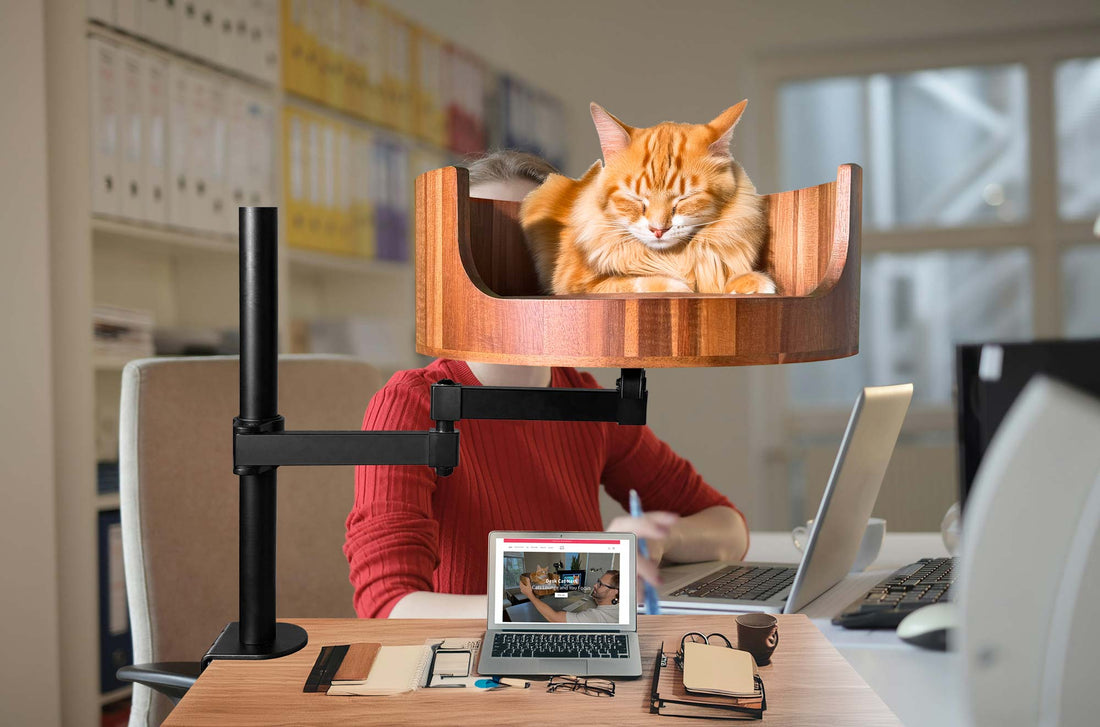
Why Does My Cat Pee in My Bed? Understanding the Behavior
Share
Have you ever woken up to the unpleasant surprise of finding your cat has decided to use your bed as a litter box? While this behavior can be frustrating and confusing for cat owners, it is not uncommon. Understanding why your cat pees in your bed is crucial to finding a solution to this unwanted behavior. In this article, we will explore the reasons behind why cats exhibit this behavior and provide tips on how to address and prevent it in the future.
Cats are known for their independent and sometimes mysterious nature, which can make it challenging to decode their behavior. However, there are several common reasons why a cat may choose to urinate in their owner’s bed. From medical issues such as urinary tract infections to behavioral problems like marking territory, there are various factors that could contribute to this behavior. By gaining insight into the motivations behind your cat’s actions and implementing strategies to address the underlying cause, you can help your feline friend feel more comfortable and secure in their living environment. Let’s take a closer look at why your cat may be using your bed as a bathroom and how you can effectively manage this behavior.
1. Urinating on the bed could be a sign of underlying health issues such as kidney problems or urinary tract infections.
2. Cats may also pee on the bed due to stress, anxiety, or changes in their environment.
3. Providing additional litter boxes, maintaining a clean litter box, and addressing any stressors can help prevent this behavior.
4. Consulting with a veterinarian is crucial to rule out any medical causes for the behavior.
5. Understanding your cat's needs and providing a comfortable, stress-free environment are key in preventing inappropriate urination.
Physical Health Issues
Cats may urinate in bed due to underlying physical health issues such as urinary tract infections, bladder stones, or kidney disease. It is important to take your cat to the vet for a thorough examination to rule out any medical causes for this behavior. Pain or discomfort while urinating can prompt a cat to seek out soft, cozy places like your bed to relieve themselves.
Stress or Anxiety
Cats are sensitive creatures and can easily become stressed or anxious, leading them to engage in unusual behaviors such as urinating in your bed. Changes in their environment, introduction of new pets, loud noises, or separation anxiety can trigger this behavior. Providing your cat with a comfortable and safe space, plenty of toys, and engaging activities can help alleviate their anxiety and reduce the likelihood of peeing in your bed.
Marking Territory
Cats are territorial animals and may mark their territory by urinating in places that smell like their owners, such as the bed. This behavior is often more common in intact male cats, but spayed or neutered cats can also engage in marking behavior. Using pheromone diffusers or sprays, providing multiple litter boxes, and keeping the bedding clean can help discourage territorial marking.
Litter Box Issues
Inadequate litter box maintenance, incorrect litter type, or placement of the litter box in an unfavorable location can also contribute to a cat peeing in your bed. Cats are extremely clean animals and may avoid using a dirty or smelly litter box. Make sure to clean the litter box regularly, use an unscented, clumping litter, and place the litter box in a quiet, accessible location to encourage proper elimination behavior.
Frequently Asked Questions
What are some common reasons why my cat might be peeing in my bed?
There are several reasons why your cat might be peeing in your bed, including medical issues such as urinary tract infections or kidney disease, stress or anxiety, territorial marking, or a dislike of the litter box.
How can the Desk Cat Nest help prevent my cat from peeing in my bed?
The Desk Cat Nest provides a comfortable and secure space for your cat to relax and feel safe. By giving your cat their own designated space, they may be less likely to pee on your bed out of stress or territory issues.
Is the Desk Cat Nest easy to clean in case my cat does have an accident?
Yes, the Desk Cat Nest is made with removable and washable materials, making it easy to clean in case of accidents. Simply remove the bedding and wash it according to the instructions provided.
Will the Desk Cat Nest solve all of my cat's behavior issues?
While the Desk Cat Nest can help address certain behavior issues, it may not solve all of your cat's problems. It is important to also consult with a veterinarian or animal behaviorist to address any underlying medical or psychological issues that may be contributing to your cat's behavior.
In conclusion, if you are struggling with the frustrating issue of your cat peeing in your bed, the Desk Cat Bed is a valuable solution that can provide numerous benefits. This innovative product offers a designated and comfortable space for your cat to rest and sleep, reducing the likelihood of accidents on your bed. With its cozy design and soothing materials, the Desk Cat Bed can help create a stress-free environment for your feline friend, ultimately discouraging undesirable behaviors such as peeing on your bed. Make the smart choice and invest in a Desk Cat Bed to improve your cat's well-being and keep your own bed clean and fresh.



















































